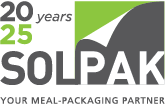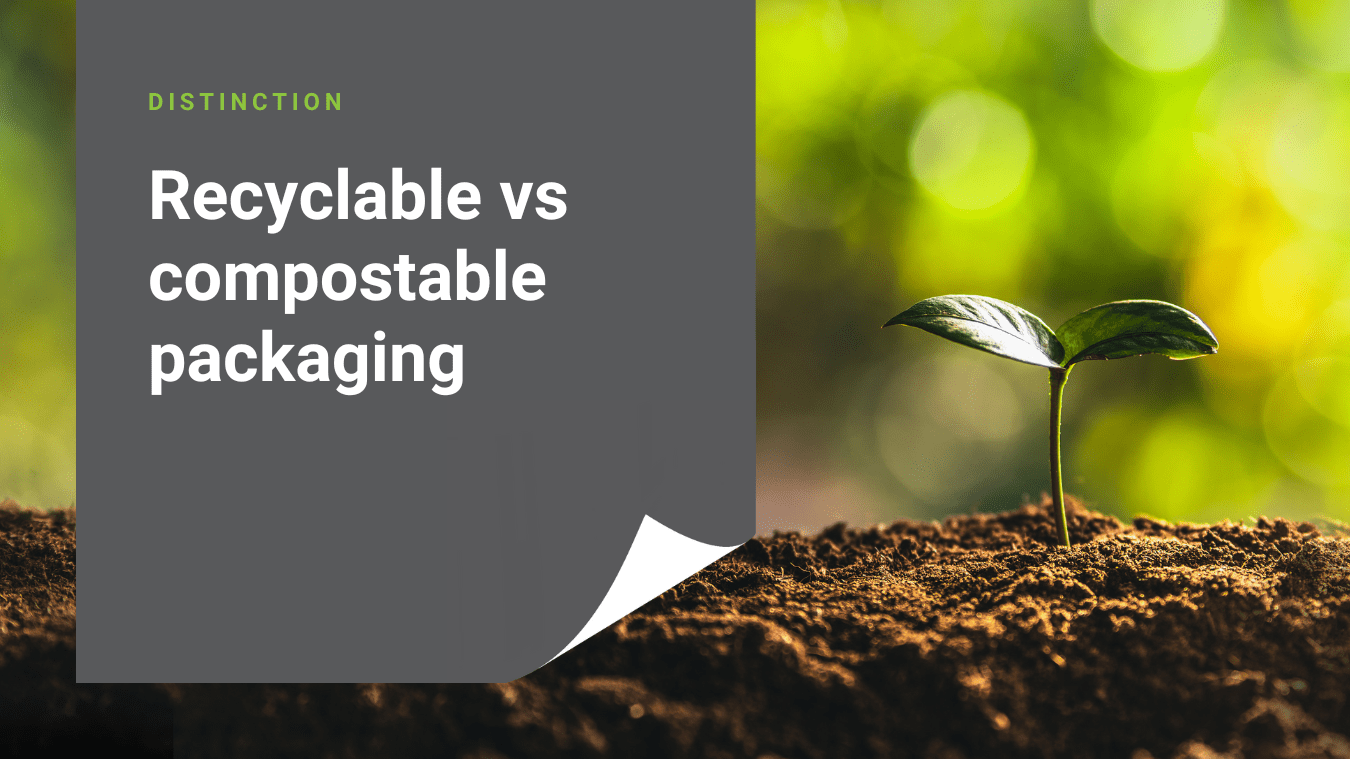Packaging has a significant influence on the environment, affecting not only flora and fauna but also the atmosphere and human beings. According to The Ocean Clean Up organization, by 2022, over 5 billion pieces of plastic waste will have accumulated in the oceans, underscoring the urgent need to tackle this major environmental problem.
Increasingly aware of this situation, consumers naturally direct their choices towards more responsible and respectful consumption. In this struggle, recyclable and compostable packaging lead the way towards a more sustainable future. Here’s what sets them apart.
Recyclable packaging
Recyclable materials are designed to be reused: they are collected, sorted, cleaned and transformed into new products. This reduces the amount of waste sent to landfills and conserves natural resources.
Solpak’s pressed paper trays are recyclable and certified by the Sustainable Forestry Institute and the Forest Stewardship Council: they represent a sustainable option in the world of food packaging, sourced from responsibly managed forestry that preserves forest health.
Not only are they environmentally friendly, they are also among the most reliable available on the market. They offer exceptional performance, guaranteeing product integrity and freshness.
With these trays, Solpak is making a responsible choice: they are helping to protect our planet while offering their customers high-quality products. It’s a victory for the future and a victory for consumers who are conscious of their environmental impact.
In a nutshell:
- Made from certified plant fibres
- From responsible forestry
- Reduce landfill waste
- Preserve natural resources
- Outstanding performance and reliability
- Contribute to a circular economy
- Sustainable option for responsible consumers
Compostable packaging
Compostable packaging is designed to decompose naturally: it degrades in the environment and contributes to a healthy planet by transforming into a fertilizing product under certain conditions (temperature, oxygen, humidity).
This means that not only is the packaging naturally produced, but at the end of its life it returns to the earth! The circle is complete, and the planet thanks you.
At Solpak, we offer ultra-resistant trays made from plant fibers such as sugarcane or bamboo, which are rapidly renewable materials because they grow so quickly. No trees are needed, and no chlorine bleach is used in the manufacturing process. Best of all, at the end of their life, you can compost your plate, bowl or dishes instead of landfilling them.
This means that waste has been recovered as the main raw material in the process that would otherwise have been burned or landfilled.
In a nutshell:
- 1. Made from 100% sugar cane and bamboo
- 2. Made from 100% renewable resources
- 3. Ultra-strong
- 4. Extremely durable
- 5. No petroleum or tree-based materials used
- 6. Grease-resistant
- 7. 100% chlorine-free
- 8. No dyes or inks
In short, recyclable and compostable packaging share a common goal: to reduce the environmental impact of waste. Both offer a more sustainable alternative to traditional packaging, which often ends up in landfill. What’s more, they encourage a circular economy where resources are reused rather than wasted.
At Solpak, we’re proud to offer a range of sustainable packaging options to meet our customers’ needs and contribute to a greener future. It doesn’t take a lot of energy to do good for the planet; just choose your packaging wisely!

